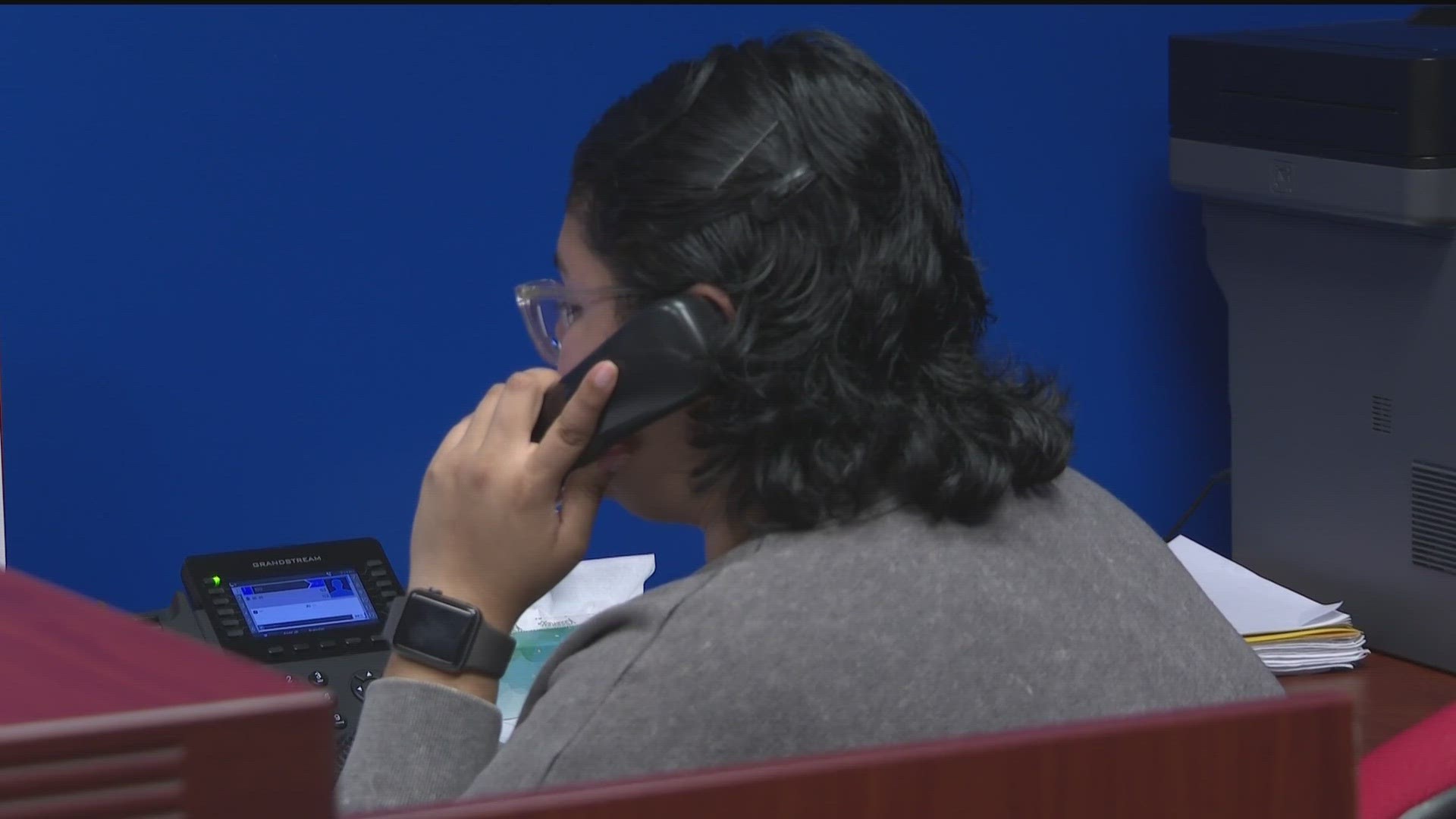KENNESAW, Ga. — The need for licensed Spanish-speaking mental health providers in Georgia is greater than ever, according to local organization Ser Familia.
The nonprofit's CEO and co-founder Belisa Urbina said the pandemic has raised that demand, making it a challenge to fill that need.
"Between psychologists, psychiatrists, licensed clinical social workers, and licensed professional counselors - those are probably the four main categories of mental health service providers - we have less than 100 that are fully licensed and can speak Spanish," Urbina said.
Urbina said with more than 1 million Latinos in Georgia, there's a heavy workload for those professionals.
"So those less than 100 have to provide services for more than a million people, so there is a lot of need," she said.
Urbina said the need for those services has not just doubled but tripled among Latino children and teenagers since the start of the pandemic.
"Our Latino kids suffer from anxiety and depression at much higher rates, not necessarily because of our parents - Latino parents are great parents - but because the support system in the community is not built for them," she said.
The nonprofit leader said before the pandemic, there was 20% to 25% of suicidal ideation among young Latinos. Now it's about 60% to 65%, according to Urbina.
Bilingual licensed mental health counselor for Ser Familia, Marlen Adames, has seen that need first-hand. She said having a therapist who speaks the same language is vital.
"The words are not translated exactly as they are supposed to," Adames said. "You lose that connection between the therapist and the client. It's really important for the person to feel understood, and also within a cultural context is really important that they feel they have things in common with the therapist."
RELATED: 11Alive celebrates Hispanic Heritage Month, Día de los Muertos with digital altar | How to submit
Urbina said when Spanish speakers tend to lean on an interpreter, it can be emotionally tough on the interpreter, and time-consuming for the therapeutic time.
"If you're using an interpreter, you're not providing an hour of counseling. You're providing, at best 30 minutes, maybe 20 to 25, because everything has to be said twice," Urbina said.
So why is there such a large gap?
Urbina explained that the younger Latinos who tend to complete their masters or doctorates, do not have the ability to complete the number of hours required for them to get their license. Without that license, they cannot provide services independently.
"Students that come are different minorities, they are going to face additional barriers for that. There's sometimes not historical wealth in the cases of Latinos," Urbina said.
She explained the domino effect of having to navigate those barriers means it could take a while to get to the finish line: a full license.
"Usually they might be the first one going to college in their family. They have to help their families with financial support," she said. "So it's difficult for them if they have to supervise 1,800 hours after they graduate with this massive amount of student debt and now have to pay $100, $150 per hour for 1,500, 1,800 hours. It becomes financially impossible."
Adames, who works through Ser Familia, hopes more Spanish speakers in Georgia can get their licenses to not just reduce the large need but to help raise awareness.
"Our Latino community is probably the less informed community about mental disorder, about emotional issues such as depression, anxiety," she said. "A lot of people do not have the knowledge about mental disorders. Therefore, they go through life suffering."

